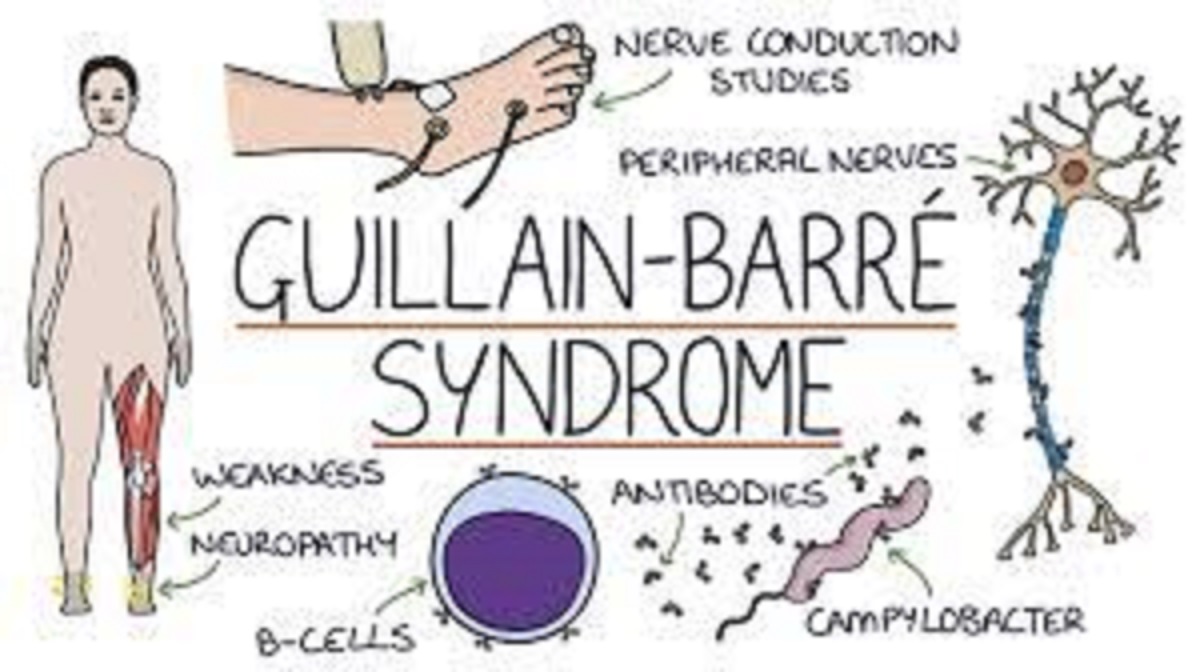
Guillain-Barré (Ghee-YAN Bah-RAY) syndrome (GBS) is a rare, autoimmune disorder in which a person’s own immune system damages the nerves, causing muscle weakness and sometimes paralysis. GBS can cause symptoms that last for a few weeks to several years. Most people recover fully, but some have permanent nerve damage. Some people have died of GBS.
What are the symptoms of GBS?
People with GBS usually first experience weakness or tingling sensations in both legs. Many times, this spreads to the arms and upper body. Symptoms may increase until some muscles cannot be used at all and, in severe cases, the person can become paralyzed. Symptoms can progress over hours, days, or weeks, and weakness typically peaks within the first two weeks after symptoms appear. Recovery may take as little as a few weeks or as long as a few years.
What causes GBS?
Several things are known to trigger GBS. About two-thirds of people with GBS had diarrhea or a respiratory illness several weeks before developing symptoms. Infection with Campylobacter jejuni, which causes diarrhea, is one of the most common risk factors for GBS. People also can develop GBS after some other infections, such as flu, cytomegalovirus, Epstein Barr virus, and Zika virus. Very rarely, people have developed GBS in the days or weeks after receiving certain vaccines.
About 1 in every 1,000 reported Campylobacter illnesses leads to GBS. As many as 40% of GBS cases in the United States are thought to be triggered by Campylobacter infection.
How common is GBS?
GBS is rare, affecting only about 1 in 100,000 people. An estimated 3,000-6,000 people develop GBS each year in the United States.
Who is at risk for developing GBS?
Anyone can develop GBS; however, in the United States, it is more common in men and adults older than 50.
Do outbreaks of GBS occur?
GBS is not contagious. However, outbreaks of germs associated with GBS, including Campylobacter, can lead to clusters of people with GBS. Learn about an outbreak of GBS that spanned an international border >external icon
How is GBS treated?
Common treatments include plasma exchange (a procedure that removes and replaces the liquid part of the blood) and high-dose immunoglobulin therapy (an infusion of antibodies).






